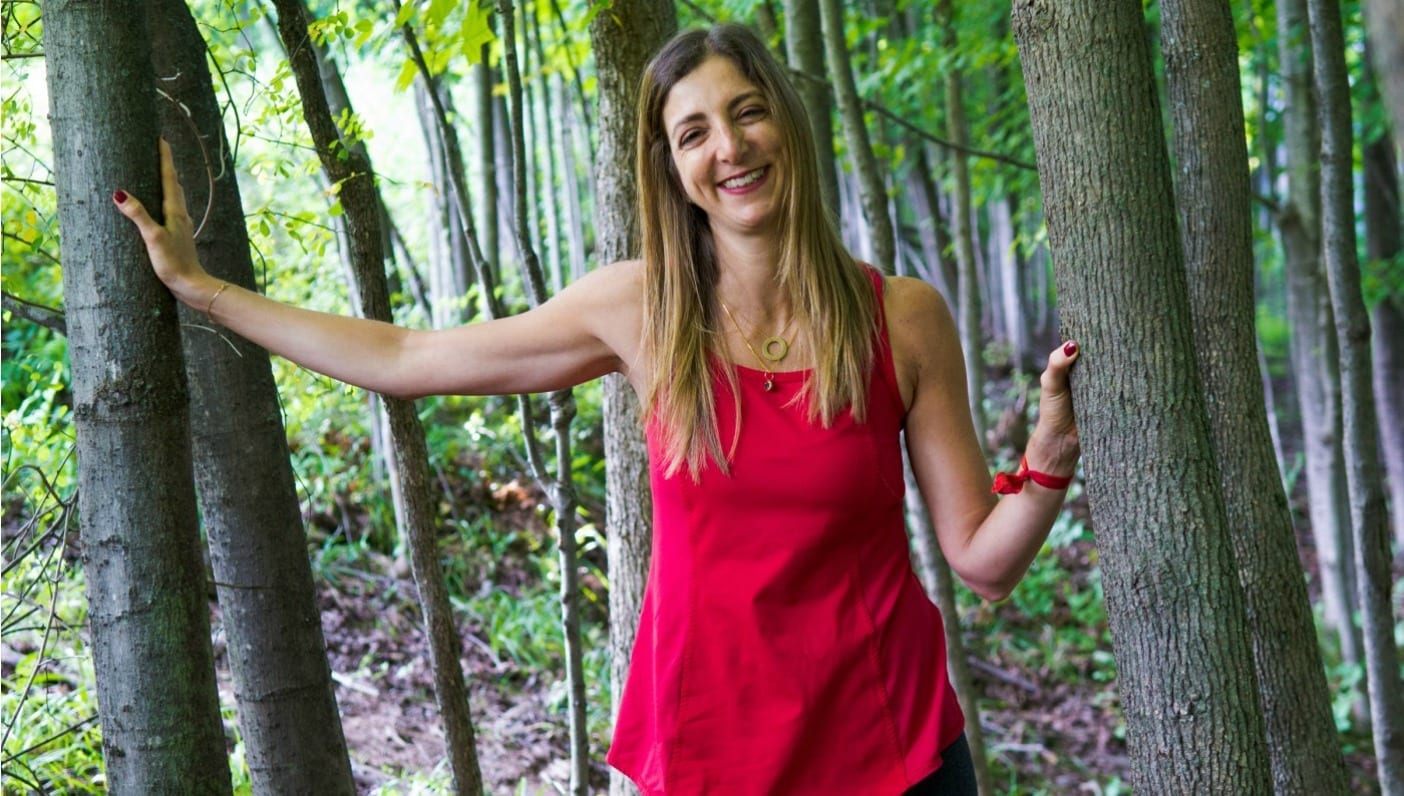
This post originally appeared on Five Tattvas.
***
I sat down with Rima Rabbath from Jivamukti Yoga the other day for our CHITHEADS interview at the beautiful Neuehaus co-work space in the Gramercy neighborhood of NYC. Rima was gracious with her time and generous with her perspective on the yoga teachings that have impacted her life.
Rima was my first yoga teacher in New York City, and I have always been touched by her ability to see the yogic teachings mirrored in her experience. At one point, She spoke eloquently about Sama Darshana, which is the practice of seeing the sameness in all beings—as we all experience loss, sadness, anger, and joy. This seems like an especially important teaching in a culture that increasingly values difference, and not the sameness that connects us. As Rima says, “it’s not that difference is bad,” it’s just that difference is just one layer of experience. One of our tasks as practitioners is to connect to that vast, open ground of Being.
Rima and I explored a lot of interesting topics, including an idea of karma that I can actually get behind! So often it seems that karma is discussed in a punitive way. “Karmic payback” is one of the terms you hear now and again. Rima’s analogy of an apple tree not bearing oranges is a good illustration of the idea that karma is ultimately about cause and effect. Kinds of causes will produce effects that correspond to those causes. It’s really quite scientific and not at all hard to wrap your mind around when posited in this way.
Be sure to give the episode a listen to hear Rima’s thoughts about it.
To find out more about Rima Rabbath, visit: jivamuktiyoga.nyc
Recommended Reads:
- Death Must Die: Based on the Diaries of Atmananda, by Atmananda
- Fail, Fail Again, Fail Better: Wise Advice for Leaning into the Unknown, by Pema Chodron
- No Time to Lose: A Timely Guide to the Way of the Bodhisattva, by Pema Chodron
- The Wisdom of No Escape and the Path of Loving-Kindness. by Pema Chodron
Photo via Wanderlust
